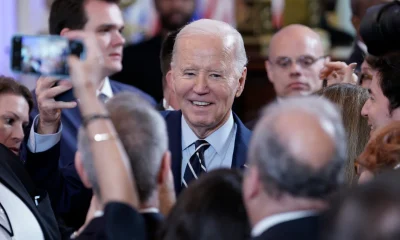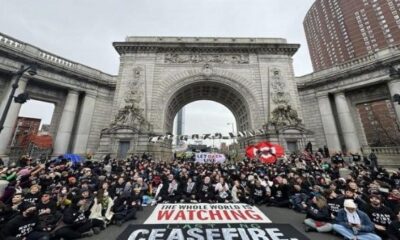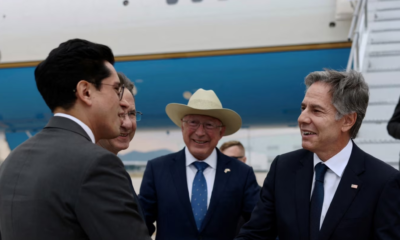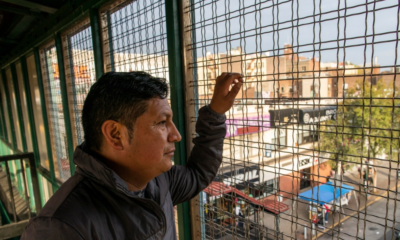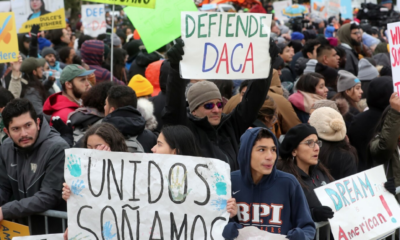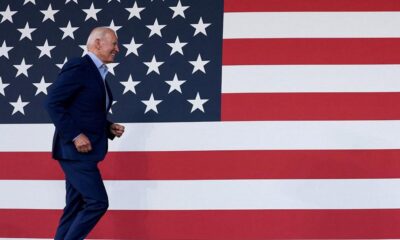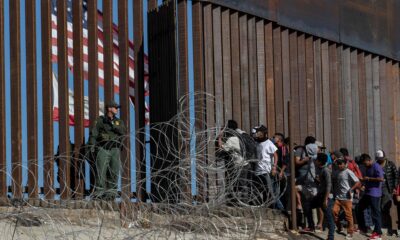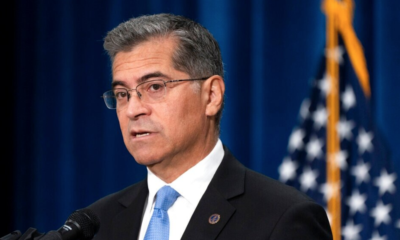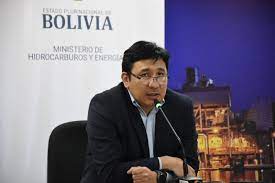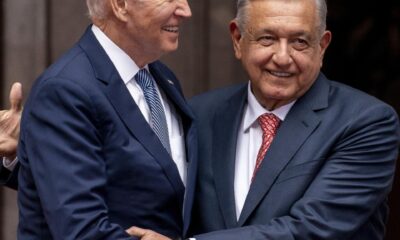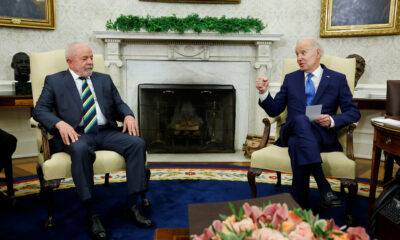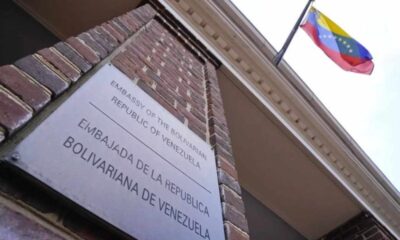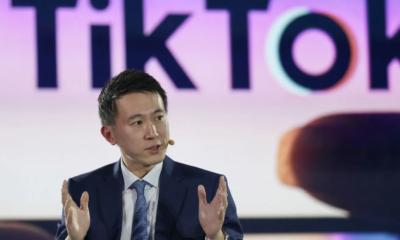International
Walmart lifts outlook on strong earnings but hit by opioid settlement

| By AFP | Juliette Michel with Beiyi Seow in Washington |
US retailer Walmart saw its earnings top expectations in the third quarter as consumers looked for bargains amid surging inflation, but its numbers were bogged down after a settlement announced Tuesday relating to opioid cases.
The big-box retailer said it “continued to gain market share” in the grocery segment, raising its full-year outlook on strong results despite a challenging environment this year.
Total revenue came in better than expected at $152.8 billion, up 8.7 percent from a year ago.
Walmart also expects that its full-year adjusted profit will decline between 6.5 percent and 7.5 percent — an improvement from earlier estimates.
But its numbers were bogged down by a settlement resolving allegations that it contributed to the opioid crisis by failing to regulate prescriptions at stores.
The deal is set to provide $3.1 billion to communities nationwide and “require significant improvements in how Walmart’s pharmacies handle opioids,” according to a statement by New York Attorney General Letitia James’s office.
This came as the opioid crisis in the United States — causing more than 500,000 deaths over 20 years — triggered a flurry of lawsuits against drugmakers, distributors and pharmacies.
US pharmacy chains CVS Health and Walgreens similarly announced preliminary agreements this month to pay a total of more than $10 billion to resolve opioid claims.
“Pharmacies such as Walmart played an undeniable role” in perpetuating the harm caused by opioids, said James, adding that the settlement is being sent to other states for review and approval.
In a separate statement, Walmart said it “strongly disputes” the allegations but believes the settlement will help communities in the fight against the crisis.
Gains in grocery
“With the cost of everyday items still stubbornly high in too many categories, more customers and members are choosing us for the value and assortment we’re known for,” Walmart Chief Executive Doug McMillon told an earnings call.
Customers are shopping with Walmart more often as well, including wealthier consumers, he said.
“Walmart US continued to gain market share in grocery, helped by unit growth in our food business,” McMillon said in a statement, adding that the company has improved its inventory position.
“When consumer finances get tough, Walmart gets going. That is the central message from today’s strong set of numbers,” said GlobalData managing director Neil Saunders in an analysis.
He noted that most of the company’s expansion is occurring in grocery where shoppers are feeling the pinch.
Although some of this is down to inflation, “there has also been volume growth which reflects the increase in customer numbers.”
With US inflation hovering near a decades-high level, consumers have been spending more on staples and pulling back on discretionary items, forcing Walmart to cut its profit outlook in July.
The company also announced in recent months that it would hire 40,000 workers for the upcoming holiday season, significantly lower than before.
Investors have been eyeing Walmart’s results as a proxy for demand, and Wall Street stocks climbed in morning trading on signs of resilience among consumers.
International
Authorities capture CJNG financial chief in international airport operation

A man identified as the main financial operator of the powerful Jalisco New Generation Cartel (CJNG) was arrested Thursday at Mexico City’s international airport, authorities reported.
The individual, named by Mexican media as Óscar Antonio Álvarez, was apprehended during an operation involving the army, navy, National Guard, police, and the attorney general’s office, according to a joint statement.
Álvarez is considered the primary financial operator of a criminal group originating in Jalisco, and the capture took place at Benito Juárez Airport as he arrived on a flight from Barcelona, Spain.
Authorities stated that Álvarez faces charges of organized crime and money laundering, specifically for receiving and transferring illicit funds. His work with the CJNG reportedly included purchasing properties and managing businesses in the tequila and livestock sectors.
According to El Universal, Álvarez was directly under the command of Rubén Oseguera Cervantes, “El Mencho”, the cartel’s top leader, for whom the U.S. offers a $15 million reward.
The CJNG, which operates throughout Mexico and in various parts of the world, was designated earlier this year as a “foreign terrorist organization” by the U.S. government.
Álvarez was handed over to the federal public prosecutor to determine his legal situation, the report added.
International
Jair Bolsonaro sentenced for leading armed criminal plot after 2022 election loss

Former Brazilian President Jair Bolsonaro, 70, has been sentenced for leading an armed criminal organization that attempted to cling to power after losing the 2022 elections to President Luiz Inácio Lula da Silva.
The alleged coup plot, which reportedly included a plan to assassinate Lula, was not carried out due to lack of support from the military leadership.
By a four-to-one vote of the judges overseeing the case, seven co-defendants, including former ministers and military chiefs, were also convicted.
“A criminal armed organization was formed by the defendants, who must be sentenced based on the factual circumstances I consider proven,” said the final judge to cast a vote, Cristiano Zanin.
Bolsonaro, who has been under house arrest since August, did not attend the court hearings, citing health issues.
Reacting on X, Senator Flavio Bolsonaro, the former president’s son, said: “They call this a trial a process whose outcome everyone already knew before it began.”
One of the first international reactions came from the White House. Former U.S. President Donald Trump called the sentence “very surprising,” while Senator Marco Rubio, U.S. Secretary of State, stated that the United States will “respond accordingly” to the “unjust” ruling.
International
Poland invokes NATO Article 4 after russian drone incursion

The violation of Polish airspace by Russian drones on Wednesday triggered the most serious clash between Russia and NATO since the start of the war in Ukraine, prompting Poland to invoke Article 4 of the NATO Treaty, which calls for consultations among allies.
Polish Prime Minister Donald Tusk addressed Parliament on Wednesday, describing an unprecedented “aggression” in which at least 19 Russian drones breached Polish airspace, creating a situation that the Prime Minister described as “the closest to an open conflict since World War II.”
Speaking at the start of an extraordinary Council of Ministers session, Tusk stated that “this is the first time Russian drones have been shot down over the territory of a NATO member state, and that is why all our allies are taking the situation very seriously.”
Although he affirmed that “there is no reason to claim that we are in a state of war,” he labeled the incidents as “a large-scale provocation” and ordered the invocation of NATO’s Article 4 to call for consultations with allied nations.
Tusk also noted on X (formerly Twitter) that he had received “not only expressions of solidarity with Poland but, above all, concrete proposals to support the country’s air defense” during discussions with European leaders throughout the day.
The Polish leader specifically mentioned conversations with the leaders of the United Kingdom, Italy, Germany, and the Netherlands—Keir Starmer, Giorgia Meloni, Friedrich Merz, and Dick Schoof—along with French President Emmanuel Macron, Ukrainian President Volodymyr Zelensky, and NATO Secretary-General Jens Stoltenberg.
-
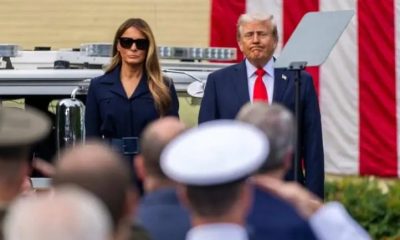
 Internacionales1 day ago
Internacionales1 day agoTrump leads Pentagon ceremony honoring September 11 victims
-
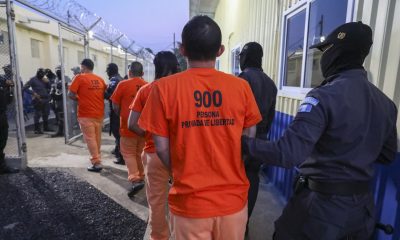
 Central America4 days ago
Central America4 days agoGuatemala arrests 32 Mara Salvatrucha members in massive security operation
-

 Central America4 days ago
Central America4 days agoNicaragua’s government expels bishops, priests, and nuns in religious persecution
-

 International4 days ago
International4 days agoUNICEF: Over 500,000 people affected by Afghanistan earthquake, urgent aid needed
-
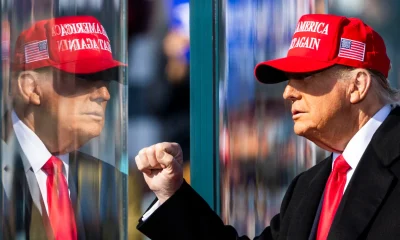
 International4 days ago
International4 days agoTrial begins for man accused of attempting to kill Trump at Florida Golf Course
-

 International3 days ago
International3 days agoWhite House calls israeli strike in Qatar “unfortunate”
-

 International3 days ago
International3 days agoMexico denies participation in DEA operation targeting Sinaloa Cartel
-

 Internacionales3 days ago
Internacionales3 days agoIsrael accepts Trump’s ceasefire proposal, demands Hamas disarmament
-

 International1 day ago
International1 day agoPoland invokes NATO Article 4 after russian drone incursion
-

 Central America1 day ago
Central America1 day agoHonduran president Xiomara Castro suspends activities due to influenza
-
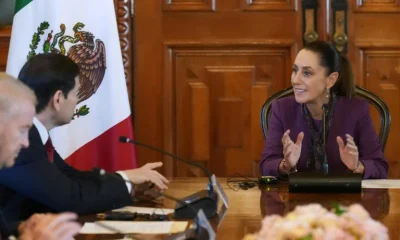
 International2 days ago
International2 days agoMexico seeks U.S. extradition of two suspects in 2014 Ayotzinapa disappearances
-

 Central America1 day ago
Central America1 day agoEl Salvador to host World Cup qualifiers vs. Guatemala and Panama at Estadio Cuscatlán
-
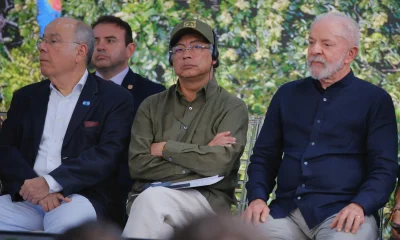
 International3 days ago
International3 days agoColombian president Petro rejects U.S. naval operations as potential threat to Venezuela
-
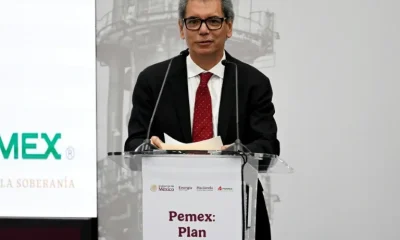
 International2 days ago
International2 days agoMexico proposes 8% Tax on violent video games to fund health and security programs
-
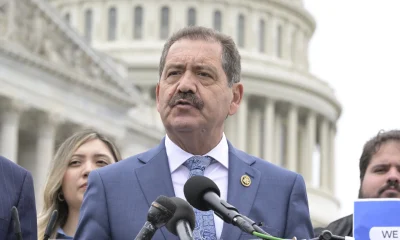
 International2 days ago
International2 days agoCongressman García calls Trump immigration raids in Chicago a “trap” for National Guard deployment
-

 International13 hours ago
International13 hours agoAuthorities capture CJNG financial chief in international airport operation
-

 International13 hours ago
International13 hours agoJair Bolsonaro sentenced for leading armed criminal plot after 2022 election loss































